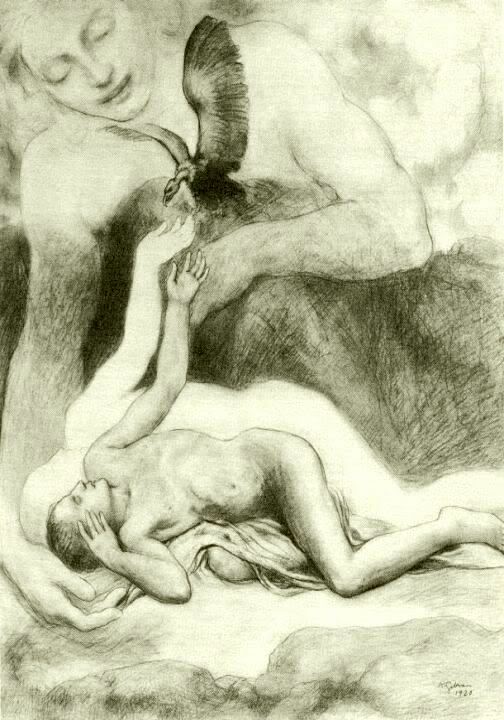More than anything, Gibran Khalil Gibran is known for his immortal masterpiece, The Prophet. Nevertheless, his other books, full of parables and surprisingly concise words of wisdom, are no less inspiring than The Prophet. I particularly like his Sand and Foam, but I would like to share three very short stories from three of his books, namely The Madman, The Wanderer and The Forerunner:
“Last night I invented a new pleasure, and as I was giving it the first trial an angel and a devil came rushing toward my house. They met at my door and fought with each other over my newly created pleasure; the one crying, ‘It is a sin!’ — the other, ‘It is a virtue!’ ” – From ‘The Madman’ (1918)
“Once the elders of the city of Aradus presented themselves before the king, and besought
of him a decree to forbid to men all wine and all intoxicants within their city.
And the king turned his back upon them and went out from them laughing.
Then the elders departed in dismay.
At the door of the palace they met the lord chamberlain. And the lord chamberlain observed that they were troubled, and he understood their case.
Then he said, ‘Pity, my friends! Had you found the king drunk, surely he would have granted you your petition’.” – From ‘The Forerunner’ (1920)
“Once there lived among the green hills a hermit. He was pure of spirit and white of heart. And all the animals of the land and all the fowls of the air came to him in pairs and he spoke unto them. They heard him gladly, and they would gather near unto him, and would not go until nightfall, when he would send them away, entrusting them to the wind and the woods with his blessing.
Upon an evening as he was speaking of love, a leopard raised her head and said to the hermit, “You speak to us of loving. Tell us, Sir, where is your mate?”
And the hermit said, ‘I have no mate.’
Then a great cry of surprise rose from the company of beasts and fowls, and they began to say among themselves, ‘How can he tell us of loving and mating when he himself knows naught thereof?’ And quietly and in distain they left him alone.
That night the hermit lay upon his mat with his face earthward, and he wept bitterly and beat his hands upon his breast.” – From ‘The Wanderer (1932)

